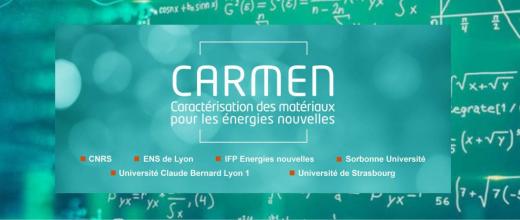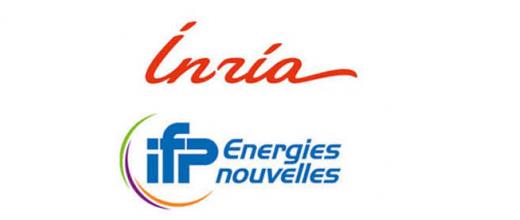IFPEN is an active member of an extremely dense network of partnerships with French, European and international academic and industrial research players, a genuine “dynamic biotope” that is constantly evolving. This dense ecosystem is underpinned by a continuous drive to select outstanding academic partners with a view to fostering long-term relationships with them.
IFPEN thus contributes to the structuring of emerging sectors, the consolidation of research communities and the reinforcement of international collaboration, in line with French and European strategic priorities in the fields of energy, the environment and transport.
IFPEN, a key player in PEPR
IFPEN plays a leading role in Priority Research Programs and Equipment (programmes et équipements prioritaires de recherche or PEPR in french), aimed at accelerating research and innovation on topics prioritized for France. IFPEN is involved in 7 SNA-PEPRs, aligned with national acceleration strategies, and 6 Exploratory PEPRs designed for emerging transformations.
In the 7 SNA-PEPRs, IFPEN:
- leads the MOBIDEC PEPR (Digitalization and decarbonization of mobility – MOBIlity DECarbonized)
- co-leads the B-BEST PEPR (Bio-sourced products - sustainable fuels) and the SPLEEN PEPR (Decarbonization of industry)
- is involved in 4 other SNA-PEPRs (BATTERIES, RECYCLING, Decarbonized H2, and TASE)
IFPEN's involvement in the 6 Exploratory PEPRs includes: SubSoil, OneWater, FairCarboN, NumPex, MATHS-VIVES, and DIADEM.
Moreover, partnerships based on fundamental research are conducted from an academic rather than an application perspective, an approach that generally avoids any issues concerning intellectual property between partners. Collaborative works between IFPEN and its partners benefit from the complementarity of their research and skills, which leads to a fruitful synergy
IFPEN has partnership agreements in place with more than 200 respected research teams, each of whom brings scientific expertise to complement that of IFPEN, expertise that is crucial to research activities dedicated to the scientific challenges.
In order to forge strategic long-term relationships with research players to support the implementation of its scientific policy, IFPEN favors the use of framework agreements with French and international partners. These framework agreements are developed on the basis of jointly-constructed collaborative research road maps. For example, framework agreements are in place with:
- ANDRA (French National Agency for Radioactive Waste Management), in the field of geosciences as well as instrumentation and steel corrosion,
- the CNRS (French National Center for Scientific Research), in numerous fields of common interest,
- the CEA (French Alternative Energies and Atomic Energy Commission), covering a variety of fields such as the use of biomass, sustainable mobility, the energy transition and energy storage,
- the University of Lyon Comue (community of universities and institutions), reflecting IFPEN’s active presence in the Lyon ecosystem,
- ENS Lyon, in the field of catalysis,
- INRAE (French National Institute for Agricultural Research), in the field of bioeconomics and geosciences to understand the role of soils in climate change mitigation,
- INRIA (French Institute for Research in Computer Science and Automation), in the field of high-performance computing, data sciences and artificial intelligence,
- Politecnico di Milano, in the fields of chemical kinetics and catalytic reactor modeling,
- UNESCO, in the field of geoscience for sustainable resource management within the context of the energy transition,
- SOLEIL synchrotron, for the detailed characterization of materials in the fields of energy and biomaterials,
- University College London, in the field of chemical engineering,
- Utrecht University, in the field of geosciences,
- Naples University, in the field of catalysis,
- Sorbonne University, in the field of geosciences, materials characterization for new energies, and catalysis,
- Stuttgart University, in the field of high-performance computing,
- Kazan University, in the field of Thermodynamics,
- Argonne National Laboratory, in the field of mobility ;
- the University of British Columbia (UBC), in the field of multiscale simulation.
In addition, IFPEN continuously forges new academic research partnerships relating to targeted themes.
IFPEN also takes part in CNRS research groups that work on scientific themes directly relating to its fundamental research. IFPEN is currently involved in around twenty such groups, either contributing to research or at managerial or governance level. These research groups cover various scientific fields: Mathematics, Physical Chemistry, Chemistry, Mechanics, Materials, etc.
IFPEN recently set a new milestone in the development of its partnerships with major academic institutions: in 2019, it joined forces with CNRS, ENS de Lyon, Sorbonne University, Claude Bernard Lyon 1 University and Strasbourg University to create the joint research laboratory known as Carmen (Caractérisation des matériaux pour les énergies nouvelles, or characterization of materials for new energies).The purpose of this new entity is to reinforce knowledge on molecular and/or colloidal transport in complex porous substrates and develop new methodologies for the detailed analysis of these materials in order to support the development of innovations for the energy transition. The collaborative work carried out by these outstanding teams makes the Carmen JRL a unique consortium on the international stage, a platform for the sharing and exchange of know-how and the pooling of high-performance equipment dedicated to the development of knowledge and innovative solutions.
In order to reinforce its fundamental research capacities, IFPEN also forges partnerships hinged around the pooling of complementary technological resources and tools. In 2018, IFPEN joined forces with 7 partners (Axel’One, Institut de la Corrosion (Corrosion Institute), CNRS, École des Mines engineering school in Saint-Étienne, INSA Lyon, MECM and Lyon University) to form the CORRTEX (Corrosion Research and Technical Expertise) consortium, a corrosion research cluster in Lyon-St-Etienne. The same year, IFPEN joined the Toulouse White Biotechnology (TWB) consortium for a three-year period. The consortium, under the joint supervision of INRAE, INSA and CNRS, develops synthetic biology methods and tools for the development of industrial biotechnologies (bio-sourced products and biocatalysts).
Lastly, IFPEN pools its low-TRL research efforts with industrial players to address a variety of scientific questions.
These examples of partnerships are, of course, far from exhaustive.









